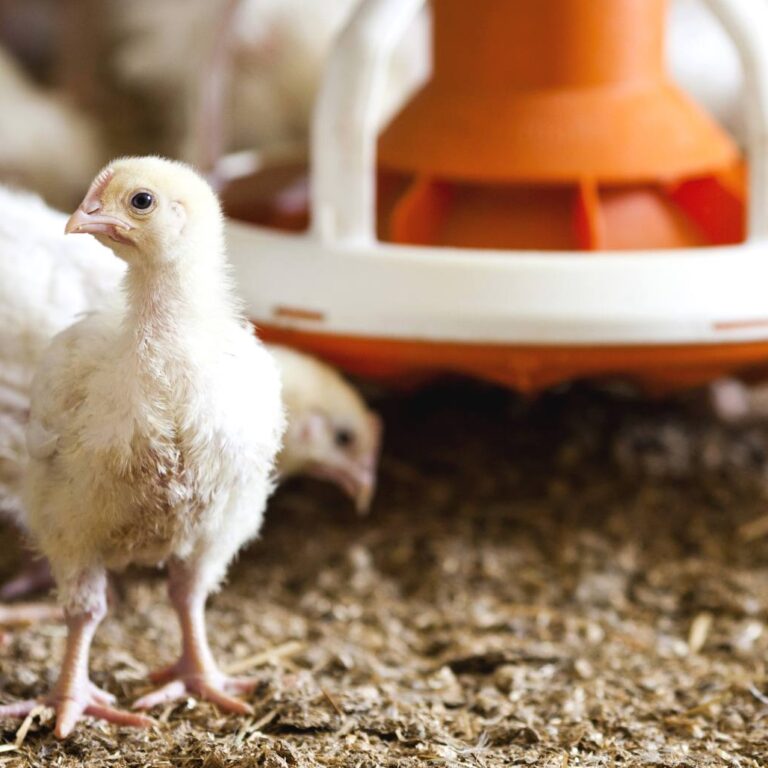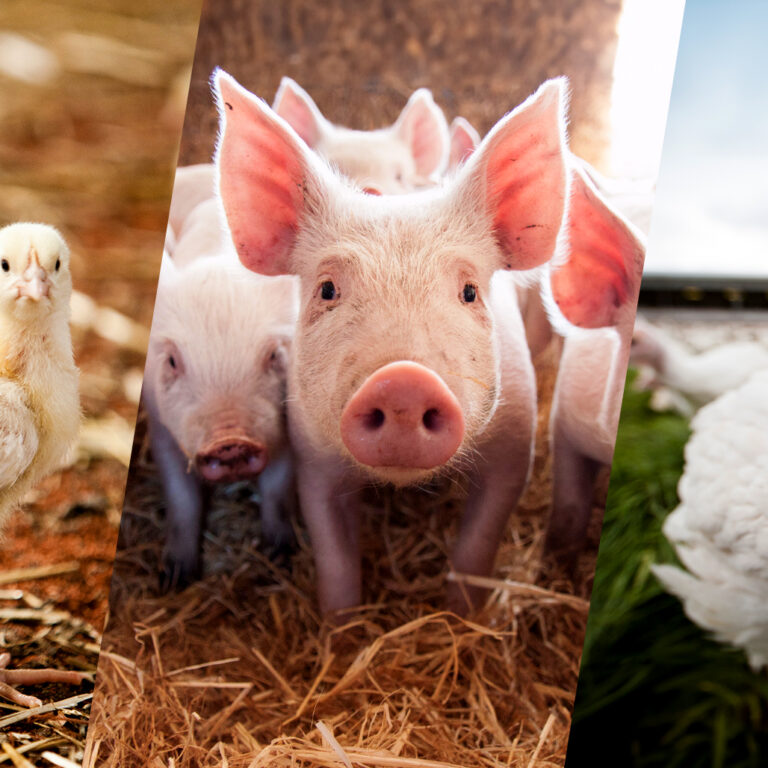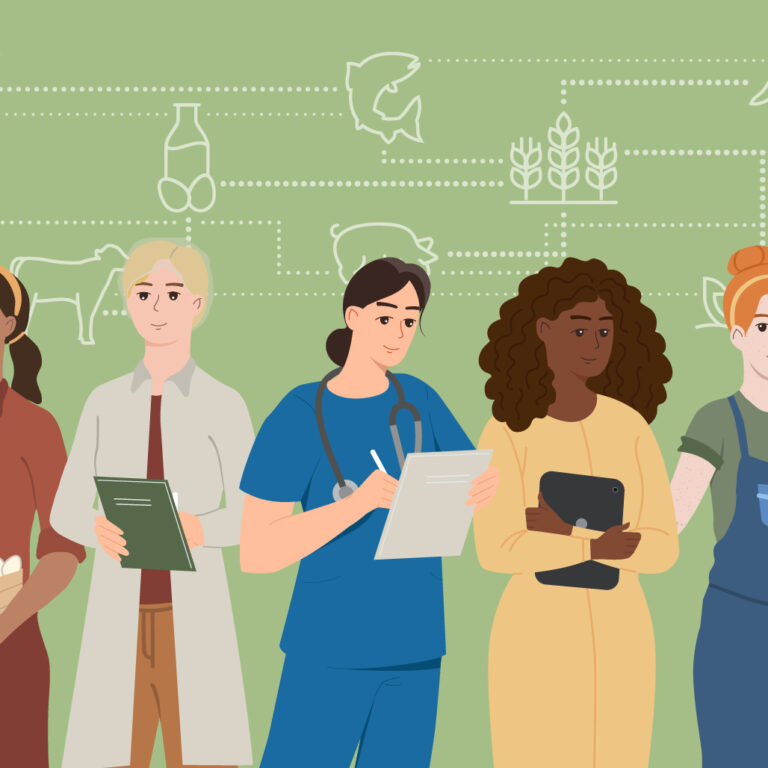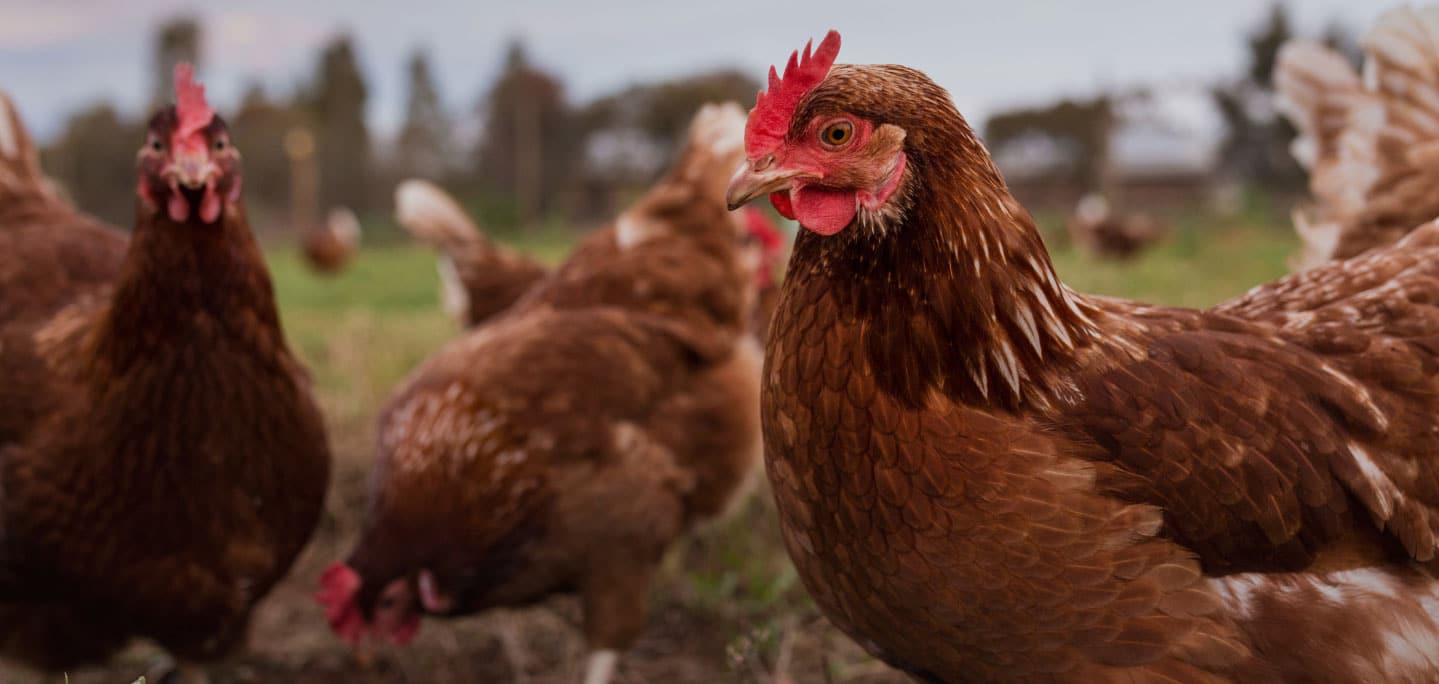As an assessor for the RSPCA Approved Farming Scheme, Sue travels around Australia, working with farmers to improve animal welfare and she’s seeing firsthand the positive difference that the Scheme is having on the lives of farm animals.
There are hundreds of farms participating in the RSPCA Approved Farming Scheme – mainly poultry and pig farms. As part of their participation, these farms must meet the RSPCA’s detailed animal welfare standards and undergo rigorous assessments at least twice per year.
With a wealth of experience in poultry (including a decade as a chicken farmer), Sue specialises in assessing farms raising chickens and turkeys for meat, and layer hens that produce eggs.
Read on to learn about a typical day for an RSPCA Approved Farming Scheme Assessor.
An early start
6.30am:
Sue has an early brekkie before getting on the road.
“We might drive 1-2 hours to a farm assessment,” she says. “We tend to stay in country towns, as poultry farms are often in regional locations.”
8.30am:
Once on farm Sue’s first job is to suit up – a biosecurity suit that is to ensure that nothing she brings in on her shoes or on her clothes contaminates the animals or their environment. Paper head covers and booties are also required. At only 1.5m, Sue jokes that she looks like a Smurf once she’s in her blue bio suit – it’s a flattering look!
Washing her hands and dipping her feet in sanitizer before the assessment starts, Sue also makes sure her equipment is pre-sanitized too. These precautions are all designed to protect the birds, as a disease outbreak would be devastating for the birds and farmers.
The birds tell the real story
9.00am – 1.00pm:
A typical farm assessment can take between 2-4 hours, depending on the size of the sheds and how many sheds are on the farm. Thoroughness is important and Sue will observe all areas where animals are kept as part of the RSPCA Approved Farming Scheme.
While walking through each shed, Sue carefully evaluates the environment against the standards, including stocking density, ventilation, added enrichment such as perches and toys, checking that the litter covering the floor is dry so birds can scratch and dust bathe, and that the overhead lighting is bright to encourage activity. At night, the lights are turned off so birds have complete darkness to rest.
“There are lots of calculations” she says. “It’s maths on the run.”
Although Sue says that it’s the birds that often tell the real story, which is why they’re the first thing she looks at during an assessment.
“When chickens are robust, fluffing themselves in dust baths and perching… when there is space to stretch and flap, you know that the grower is managing well and that chook comfort and welfare is a priority,” Sue explains.
1.00pm – 1.30pm:
Sometimes multiple farms that are close in proximity will supply one company so if there’s time in the day Sue will assess a couple farms – with a thorough cleaning of all equipment between them.
Before leaving one farm for the next though, Sue finds somewhere to finish off the paperwork for the assessment. But don’t think that means she sits down at a desk!
“I’ve done paperwork on the front of the farmer’s ute, sitting under a tree, in a shed workshop…” she says.
Sometimes, she even has some interesting company.
“I once went to do the paperwork on a farmer’s back veranda and was asked if I like reptiles,” she recalls. “A huge bearded dragon was brought out and placed on the table. Beautiful! As I did paperwork, the dragon walked around and casually crawled onto me and draped himself across my chest…was a nice spot for a temporary office.”
Wrapping up for the day
4.30pm – 8.00pm:
After being on farm all day, Sue’s first port of call is always the shower. Afterwards, she’ll make a start on writing her reports which are submitted to a specialised team at RSPCA Australia where they are reviewed.
An assessor’s job is never done…
10.00pm – 1.00am:
With the RSPCA Approved Farming Scheme’s focus on providing good animal welfare throughout the animal’s life, the transport and slaughter of chickens and turkeys for meat is also assessed to ensure it meets the RSPCA’s standards.
In the case of poultry, birds are normally picked up at night. This means a much longer day for Sue, who gets picked up and taken to the farm to assess the process.
Sue says “we look at paperwork from past collections and check that the catchers are handling animals in a way that’s meeting the requirements of the RSPCA’s standards,” she says.
At the abattoir, Sue focuses on the handling of birds and ensuring that they are stunned and unconscious before slaughter.
“Assessing the slaughter of the animals is difficult,” she admits. “But it’s important for these birds to have a fast and humane death.”
The best part of the job
The life of an RSPCA Assessor is a busy one, but for an animal lover like Sue, it’s all worthwhile. Visiting farms as often as she does, Sue says it’s rewarding to see farmers embracing higher welfare farming.
Travelling around the country also means visiting some great regional areas and meeting dedicated farmers, their families and employees.
“As a former chicken farmer and now an assessor with the RSPCA Approved Farming Scheme, there’s nothing better than seeing poultry farming done well and with a focus on welfare – it’s something I’m proud to be part of,” she says.
**
RSPCA Australia employs specialised animal welfare Assessors to assess farms against the RSPCA’s animal welfare standards, which go beyond what is required by law. This is entirely independent of the state and territory RSPCA Inspectors, whose role it is to enforce existing animal protection legislation on behalf of the state and territory government.
To find out more about the RSPCA Approved Farming Scheme – including information about the RSPCA’s standards and where to buy RSPCA Approved products visit rspcaapproved.org.au






